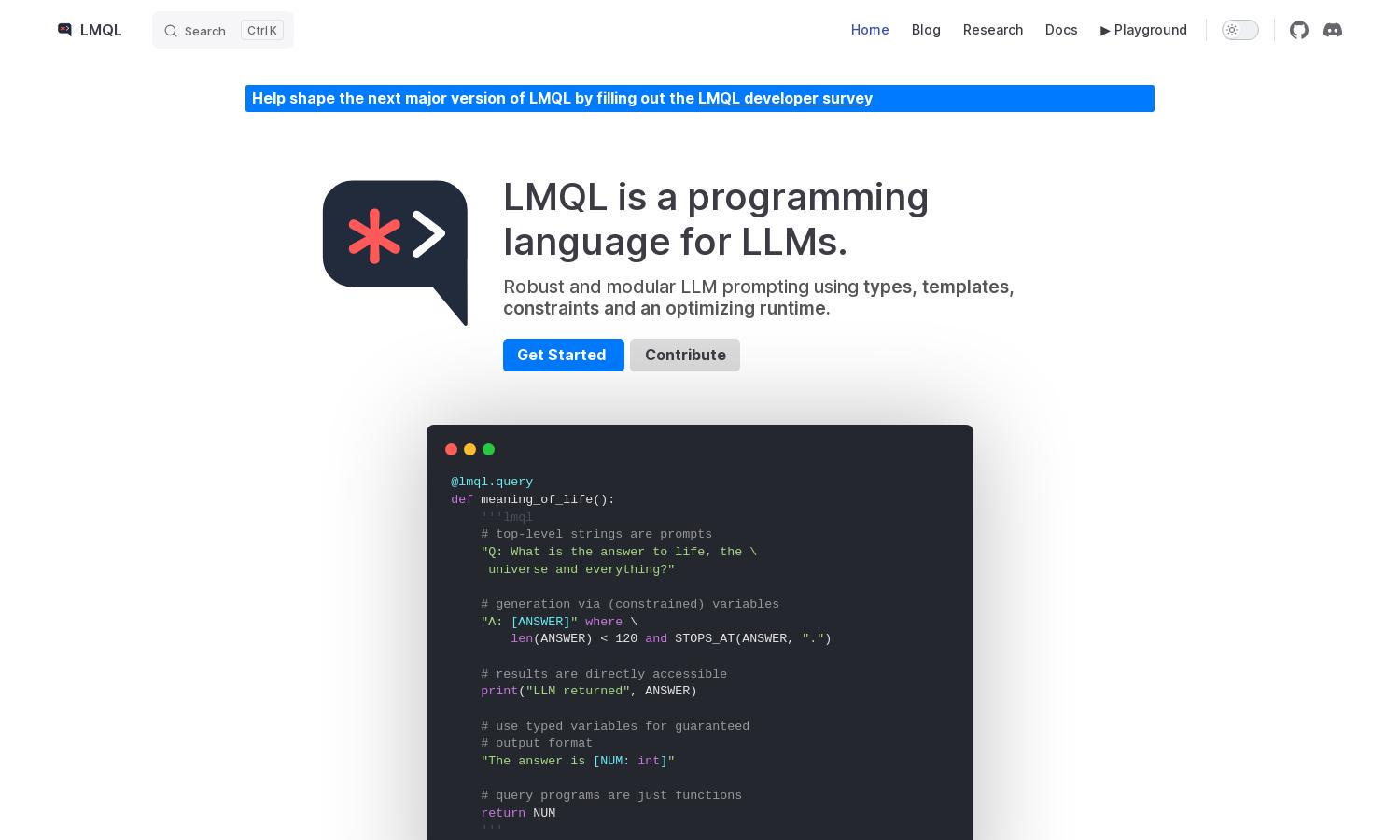LMQL

About LMQL
LMQL is an innovative programming language that facilitates interaction with large language models for developers. It offers unique features like modular prompting, nested queries, and portable code across multiple backends. By simplifying the use of LLMs, LMQL enhances productivity and efficiency in various applications.
LMQL offers a flexible pricing model with a free tier for beginners and affordable subscription plans for advanced users. Each plan prioritizes user needs, providing access to premium features, enhanced support, and continuous updates. Upgrading unlocks greater potential to harness LLM capabilities effectively.
The user interface of LMQL is designed for clarity and ease of use. Its streamlined layout guides users through programming concepts with intuitive features that enhance navigation and interaction. This user-friendly design ensures efficient use of LMQL while fostering a productive development environment.
How LMQL works
To interact with LMQL, users begin by signing up and exploring the straightforward onboarding process. They can write and test queries in a friendly environment, utilizing advanced features like types and nested queries to build robust prompts. This seamless experience aids developers in maximizing the potential of large language models.
Key Features for LMQL
Modular Prompting
Modular prompting is a key feature of LMQL, allowing users to create flexible and reusable prompts. This functionality enhances workflow efficiency, making it easier for developers to interact with large language models. LMQL’s innovative modular approach significantly benefits users in generating targeted responses.
Nested Queries
Nested queries in LMQL provide a unique way to implement procedural programming within prompts. This capability allows users to break down complex requests into manageable components, streamlining interactions with large language models and enhancing overall functionality for developers working on intricate tasks.
Type Safety
Type safety in LMQL ensures that users receive guaranteed output formats, minimizing errors in responses from large language models. This feature not only increases reliability but also boosts developer confidence in the queries, making LMQL a trustworthy tool for generating structured data responses.








